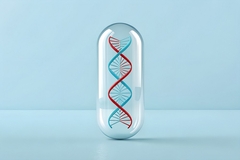AB-Biotics Granted European Patent for Cholesterol- Lowering Probiotic AB-Life

10 Sep 2013 --- The Spanish biotech company AB-Biotics announced that the European Patent Office (EPO) has granted a patent which protects the composition of its cholesterol-lowering probiotic AB-Life.
Filed on September 28, 2010, the patent (EP2485743) protects compositions comprising the probiotic strains of Lactobacillus plantarum CECT 757, CECT 7528 and CECT 7529. These new strains have good probiotic features and are useful for the prevention and/or the treatment of hypercholesterolemia and cardiovascular disorders. The compositions comprising AB-Life strains can be pharmaceutical, veterinary and edible compositions. The patent also protects the administration of AB-Life with other cholesterol-lowering products such as statins, thereby allowing reduce the dose of these widely used drugs whose chronic consumption can cause side effects.
"This patent is a major milestone that allows us to protect AB-Life in one of the most important markets for AB-Biotics: Europe", said Sergi Audivert and Miquel Angel Bonachera, co-founders and CEOs of AB-Biotics.
AB-Biotics has already signed license agreements with different pharma companies to distribute AB-Life in Southeast Europe (through Inspharma), Germany (HLH Biopharma) and Spain and Portugal (Lacer), and also in South Korea (HanAll BioPharma), Mexico (Armstrong Laboratories), Brazil (Biolab) and Venezuela (Leti). AB-Biotics expects to license the product in new European markets, like United Kingdom or Italy, in 2014.
The first probiotic therapy for preventing cardiovascular diseases AB-Life, developed by AB-Biotics, is a probiotic formula which reduces total cholesterol levels between 14% and 18%, according to clinical trial supported by the Ethics Committee of Hospital Puerta del Hierro (Madrid). AB-Life can reduce cholesterol in two ways: first, by capturing and immobilizing dietary cholesterol in its membrane, and second, by hastening metabolism of bile salts and forcing the liver to capture blood cholesterol in order to synthesize new salts. This is of particular interest as between 60% and 70% of blood cholesterol isn’t from dietary cholesterol.












